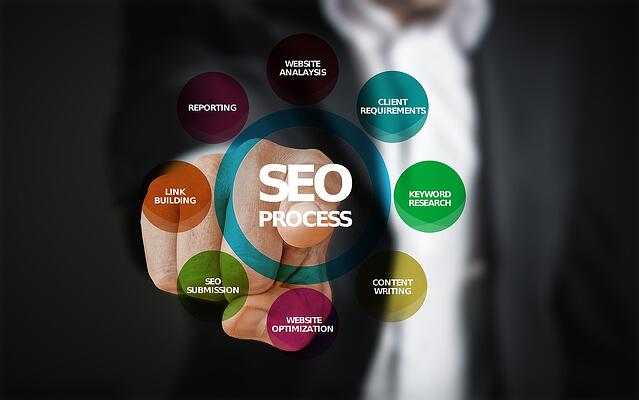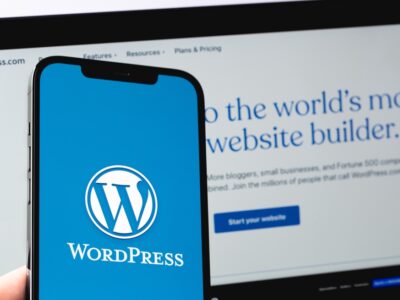When you’re building a brand from scratch, a good first start is to arm yourself with the appropriate tools that make it easier to understand trends and position your content. However, there are plenty of other things you can do as well.
For example, you can invest in acquiring existing websites to help bolster your brand’s online presence. Keep in mind that not all websites are created equal, and you need to train your eye to be able to spot good opportunities so that you can use these assets to help your company grow.
To help you determine if an established website is good for you, here are some key things to look for:
1. Does it align with your business goals?
This is a critical first step. There are lots of websites out there making money, but they’re all doing so in a unique way. When searching for one to buy, you need to make sure it fits in with your overall strategy.
If you’re running an eCommerce business selling athletic equipment, it wouldn’t make a whole lot of sense to buy a website dedicated to internet security, no matter how attractive it might be.
Now this might seem obvious, but people often fall for this. They see a site that has a strong audience and good earning potential, and they think they can repurpose it into something of value for their business. But this is a mistake. Google indexes sites based on the niche they operate in, so if you try to do this, you may end up restarting from the beginning because you’ve invested in something completely irrelevant.
Building off this athletic equipment example, you may want to look into buying sites that tailor to runners or hikers. Even if they aren’t making money, the reach into this segment of your market can often times be well worth the investment.
2. What is its traffic potential?

The purpose of buying an established website is ultimately to help drive more traffic to your site so that you can boost conversion numbers and profits. So, you’ll want to take a good long look at how the potential site can do this.
Try your best to get a hold of the site’s traffic numbers. Are they growing? Holding strong? Shrinking? While sites that are decreasing in significance in their niche may end up being cheaper, you are running the risk of them falling out of relevance, and this will hurt you in the end.
If this is happening, try to find out why so that you can determine if you’ll be able to turn things around. On the other hand, if traffic is growing, make sure you’ll be able to build on this trend and make it work for your business.
It’s also a good idea to look at where this traffic is coming from. The best-case scenario is that it is coming from organic searches, as this will be the easiest to maintain once you take over. If a majority of the traffic is coming from paid sources, though, this may be tricky. You’ll be taking over something that might end up costing you a lot of money to maintain at its current level.
3. What is its SEO potential?
In the world of online shopping, around 95 percent of all traffic comes from organic search, as compared to just 5 percent from paid traffic. And in general, organic search accounts for more than half of all traffic.

What does that tell us? In a few words: SEO pays. Being able to consistently rank at the top of search engine results pages for high-value keywords is going to bring lots of quality traffic to your site, where your conversion strategies will hopefully turn these visitors into customers.
So, when looking to buy an established website, you need to make sure your investment is giving you a boost in the world of SEO. Some questions to ask during your SEO audit include:
- Is the site ranking for any keywords that could be of value to you?
- What is the site’s Domain Rating? (a ranking that partially determines where a site will rank on search engines’—Google’s—results pages)
- How strong is the site’s backlink profile? (how many links are pointing to the site, and where do they come from?)
One thing to note about backlinks is that not all links are created equal. Do some research, since a site may have tons of links but many of these may come from low-quality sources or may be spam. It’s much better to have fewer links from high authority sites than many links from junk sites.
You’ll also want to make sure the links are at least somewhat relevant to your niche. They don’t need to be entirely related, but it certainly helps.
4. Are you getting a good deal?
Lastly, when buying an existing website, you’ll be spending one of, if not the most important resources your company has: money. As such, it is critical you get the right deal so that you don’t end up spending too much money and regretting your decision later on.
Take some time to learn about what would make a website valuable. Typically, an online business is worth 2.5 times its yearly revenue, so you’ll want to make sure whatever price you pay is around that number.
There may be reasons to spend more or less. For example, is there a competent team already in place that makes use of efficient processes? It may cost you a bit more to keep them on, but it also may save a major headache down the road.
When people sell their websites, they are obviously looking to get the best deal they can get, but don’t let them bully you. Do your homework and be prepared to bargain. If you offer a price that is fair and stick to it, you’ll find yourself in a nice win-win situation that minimizes stress on both sides.
Buying an existing website can be a great boon to your business. It can give you a leg up on the competition that could end up being the difference between you becoming an industry leader or remaining one more in the pack. But it isn’t an automatic. Keep your eyes out for these key components of existing websites to make sure you’re getting something that can truly transform your business.




